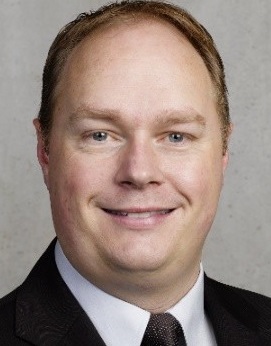Managers and the development of self-efficacy and collective efficacy
Expectations of self-efficacy – a brief refresher
Collective efficacy – what follows in the team
The importance of the manager for self-efficacy and collective efficacy
The role of the manager in the modern world of work
Success-shaping factors from the perspective of successful managers
Short and sweet
Managers can have a decisive influence on the development of their employees’ self-efficacy expectations and collective effectiveness. This blog post shows the various ways in which they can actively contribute to improving the mood and motivation in the team and thus also increase the success of the company.
Expectations of self-efficacy – a brief refresher
Before we look at the importance of leaders for the development of self-efficacy expectations and collective efficacy, we would first like to give a brief refresher on the topic of self-efficacy expectations. This refers to the extent to which a person believes they are capable of successfully accomplishing certain tasks (Warner, n.d.).
The higher the self-efficacy expectation, the more likely a person will try to take on difficult challenges and challenge themselves. On the other hand, a low expectation can lead to a person withdrawing and shying away from challenges (Bandura, 1997, pp. 191-215; Luthans et al., 2004, 2007). It is therefore important for the success of a team and an organisation that its members have a high expectation of self-efficacy.
Collective efficacy – what follows in the team
In addition to individual self-efficacy expectations, collective efficacy also plays a decisive role in the team. Collective efficacy describes the team members’ confidence in the team’s ability to achieve goals together. This trust can help team members to feel more motivated and increase their commitment. They can work together better, resolve conflicts more quickly and overcome challenges together.
To promote positive collective efficacy, it is important that the manager creates an environment in which team members feel safe and supported. In principle, collective effectiveness is characterised by
- team effectiveness,
- team performance,
- problem-solving ability,
- transformational leadership,
- job satisfaction and
- and the corresponding commitment (Bandura, 1997, p. 477).
The manager should therefore define clear objectives and support the team in achieving these objectives. Regular feedback meetings and recognition for good performance are also important success factors. Open communication within the team also promotes mutual trust and strengthens the sense of togetherness. The manager has a role model function here and should be able to communicate transparently and accept feedback (Bandura, 1998; Sutcliffe & Vogus 2003, Bruch & Vogel 2009).
Overall, positive collective effectiveness can contribute to a team feeling successful and thus remaining motivated in the long term. A successful manager contributes significantly to this by creating an environment in which the team members feel safe and supported and can be successful as a collective.
The importance of the manager for self-efficacy and collective efficacy
A manager has a significant influence on the self-efficacy expectations and collective effectiveness of their team. Through targeted measures, managers can therefore strengthen their employees’ confidence in their own abilities and thus increase their self-efficacy. By also creating a climate in which teamwork is encouraged and each individual can optimally contribute their strengths, they support the development of collective effectiveness.
A positive attitude of the manager towards their employees and open communication at eye level are of great importance here. The role model behaviour of the manager also plays an important role: if they themselves believe in the strengths of the team and take responsibility, this also motivates their employees to get involved and be successful together. In the modern working world, it is therefore essential that managers actively participate in the development of individual and collective expectations – this is the only way for companies to be successful in the long term.
The role of the manager in the modern world of work
The role of the manager in the modern world of work is particularly important when it comes to developing self-efficacy expectations and collective effectiveness. Various studies have shown that managers who have a positive effect on their teams – also referred to as “energising” – have a significant positive impact on
- performance,
- well-being,
- satisfaction,
- commitment and
- even the family life of individual team members.
They help to strengthen overall organisational performance, promote willingness to learn, innovation and teamwork (Cameron & McNaughtan, 2014).
When managers show more positive emotions, this also has a positive effect on the feelings of their team members. This leads to a “trickle-down effect”, a process in which positive emotions spread within the team (Bono & Illies, 2006).
A manager can actively contribute to their employees developing a high expectation of self-efficacy and thus working in a more motivated and goal-oriented manner. Here it is important that the manager has a positive attitude towards the abilities of their team members and shows them trust. They should also give and receive regular feedback and support their employees in mastering difficult tasks.
The development of collective effectiveness is also the responsibility of the manager. Through targeted measures, they can help a team feel like a unit and work together towards a common goal. It can be helpful here to define shared values or carry out regular team-building measures.
Overall, the manager has an important role to play in developing expectations. They should be aware that their actions have a major influence on the team and act responsibly accordingly. Successful managers rely on open communication, clear objectives and the promotion of personal responsibility and team spirit.
Success-shaping factors from the perspective of successful managers
Success-shaping factors from the perspective of successful managers are diverse and can vary from person to person. Nevertheless, there are some common denominators that are repeatedly mentioned. These include, among others
- a clear vision and strategy,
- open communication at all levels and
- an authentic demeanour and
- a high level of social competence.
Empathy and the ability to support and motivate employees individually are also important success factors. Managers should also be able to actively shape change and keep a cool head even in difficult situations. A positive error culture and an open feedback system complete the picture.
All of these factors contribute to the development and strengthening of self-efficacy expectations and collective effectiveness in the team – provided that the manager consistently implements and exemplifies them (Reinhardt & Winners, 2021; Kunze & De Jong, 2014).
Short and sweet
In order to promote self-efficacy expectations and collective effectiveness in the team, it is crucial that managers actively participate in the development of these factors. Managers are in a position to strengthen employees’ trust and confidence in their own abilities through targeted measures. By giving their employees constructive feedback, encouraging them and giving them space to work independently, self-efficacy expectations can be strengthened. At the same time, managers can contribute to increasing collective effectiveness through clear communication and goal setting as well as a positive working atmosphere.
In the modern working world, these factors play an increasingly important role as they can have a positive impact on the success of the organisation. Successful managers therefore rely on open communication, employee involvement and targeted training measures to promote the self-efficacy and collective effectiveness of their teams.
In short, a motivating and supportive leader can make a significant contribution to promoting individual strengths and ensuring that the team as a whole is successful.
Extra bonus
Here you will find 3 additional questions answered by Sascha Ruelicke and Sarah Jauer (please press the plus buttons):
How can managers measure whether their efforts are helping to improve team performance and organisational success?
Sarah Jauer: The topic of “measurement” is essential, and it’s not about the simplest measuring instrument, but the right one. Fortunately, there are a number of scientifically developed instruments that can capture these points (e.g. Team Climate Inventory – TKI: or Allgemeine Selbstwirksamkeit Kurzskala ASKU.)
The results should then be discussed and changes in the desired direction should be worked out together.
How do managers find the right balance between the individual development of individual employees and the collective strengthening of the entire team?
Sascha Ruelicke: This is of course a general topic that is also relevant in the context of personnel development. In this specific topic, however, it also goes a little further, because in addition to developing the self-efficacy of individuals, collective efficacy also needs to be developed. To this end, the focus should be placed on the following factors, among others: Task-orientation, clear communication, promotion of autonomy, feedback culture, recognition and appreciation, as well as conflict management.
How can managers support virtual teams to improve the development of self-efficacy expectations and collective efficacy?
Sarah Jauer: As every team has an individual way of working, the levers are also individual and have different levels of effectiveness. In principle, virtual or hybrid teams require a different form of communication and leadership than teams that work exclusively on site. In our management coaching sessions, for example, we take a closer look at which levers can have the greatest impact in the respective team.
Notes (partly in German):
This article is a joint effort by Sarah Jauer and Sascha Ruelicke. It follows on from the article Self-efficacy and collective effectiveness in the team.
Would you like to talk to Sascha Ruelicke about his experience? Then connect with him on LinkedIn. You can also find Sarah Jauer on LinkedIn.
- Bandura, A. (1997) Self-Efficacy: The Exercise of Control. New York: W.H. Freeman and Company.
- Bandura, A. (1998). Personal and collective efficacy in human adaptation and change. In J. G. Adair, D. Bélanger, & K. L. Dion (Hrsg.), Advances in psychological science, Vol. 1. Social, personal, and cultural aspects, S. 51-71. Psychology Press/Erlbaum (UK) Taylor & Francis.
- Bono, J. E. & Ilies, R. (2006). Charisma, Positive Emotions and Mood Contagion. The Leadership Quarterly, 17, 317-334.
- Bruch, H. & Vogel, B. (2009). Organisationale Energie. Wiesbaden: Gabler.
- Cameron, K. & McNaughtan, J. (2014). Positive organizational change. The Journal of Applied Behavioral Science, 50(4), 445–462.
- Kunze, F. & De Jong, S. B. (2014). Die zwei Seiten transformationaler Führung: Folgen für Team- und Unternehmensleistung. PERSONALquarterly, 2/14, 34-39.
- Luthans, F., Luthans, K. W. & Luthans, B. C. (2004). Positive psychological capital: Beyond human and social capital. Management Department Faculty Publications. 145.
- Luthans, F., Avolio, B. J., Avey, J. B., & Norman, S. M. (2007). Positive psychological capital: Measurement and relationship with performance and satisfaction. Personnel Psychology, 60, 541–572.
- Reinhardt, S. & Winners, M. (2021). Transformation von Führung – Reflexion und Resonanz als Zukunftskompetenzen. Stuttgart: Schäffer-Poeschel Verlag.
- Sutcliffe, K. & Vogus, T. (2003). Organizing for resilience. In K. Cameron, J. Dutton & R. Quinn (Hrsg.), Positive Organizational Scholarship: Foundations of a New Discipline, 94-110.
- Warner, L. M. (o. J.). Selbstwirksamkeitserwartung. In: M. A. Wirtz. Dorsch Lexikon der Psychologie. Aufgerufen am 10.08.2022.
If you like the article or would like to discuss it, please feel free to share it in your network.
Sascha Ruelicke has published more articles in the t2informatik Blog:

Sascha Ruelicke
Sascha Ruelicke is Managing Director of sbc soptim business consult GmbH. Before joining sbc as a consultant in 2009, where he dealt with topics such as work and process design, innovation, innovation climate, project management and team and organisational development, he worked for almost seven years as a research assistant at the A.U.G.E. Institute of the Niederrhein University of Applied Sciences in applied research. In various research projects there, he got to know team and organisational development in small and medium-sized enterprises.

Sarah Jauer
Sarah Jauer is a business psychologist and consultant specialising in occupational and health psychology. She joined sbc in mid-2022 as a consultant and trainer of soft skill topics such as stress management, self-management & communication. Previously, she supported companies in optimising processes and overcoming challenges. Together with clients, she develops effective strategies for coping with stress in the work environment and supports their implementation.


